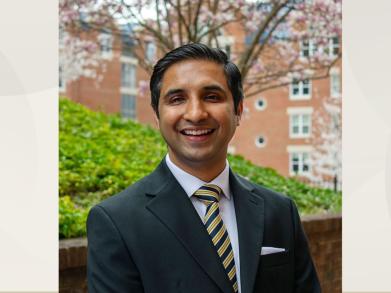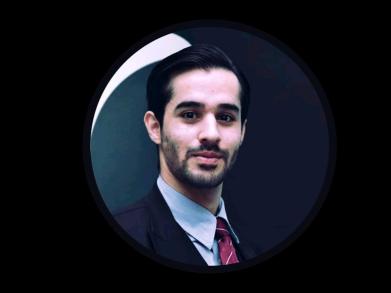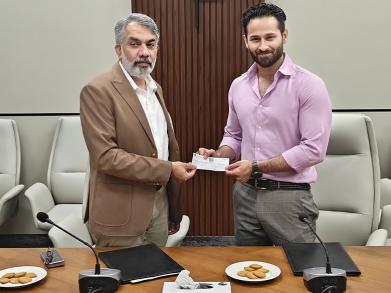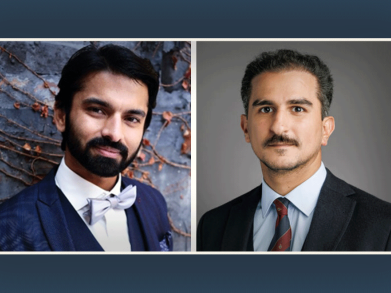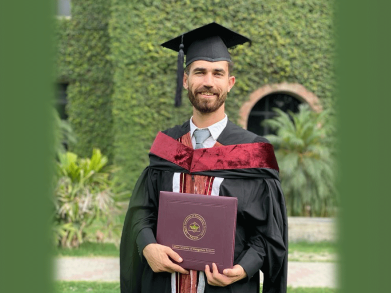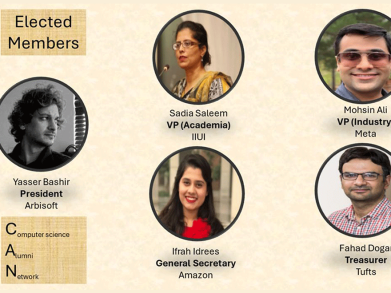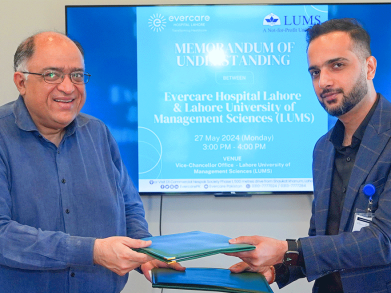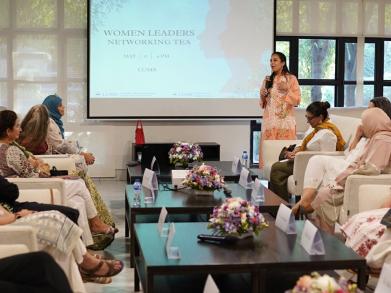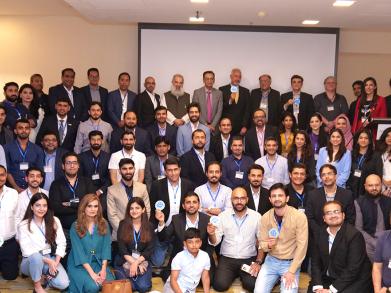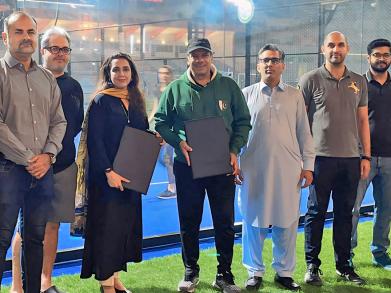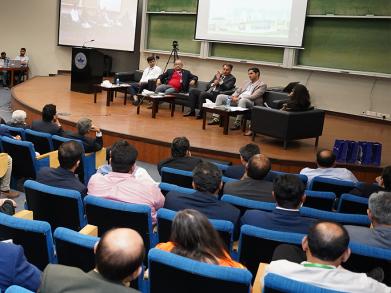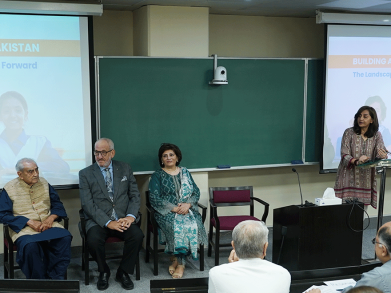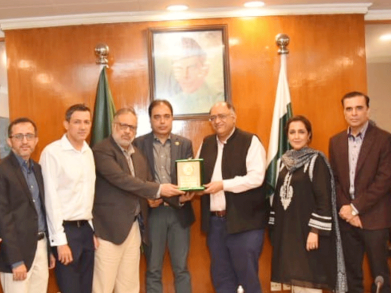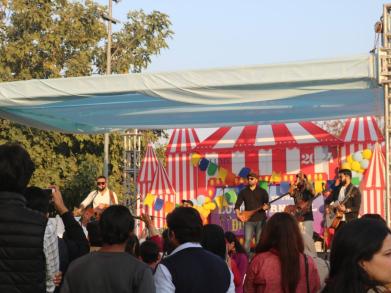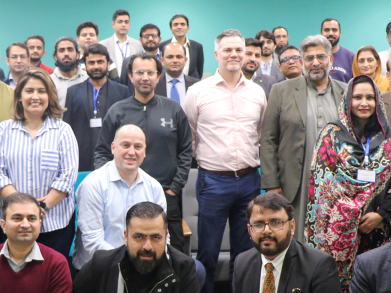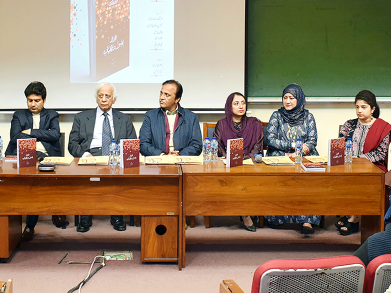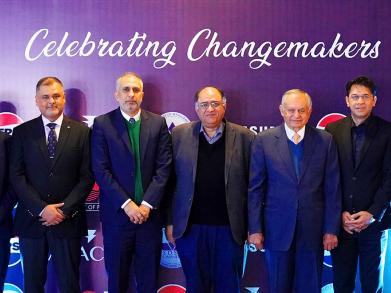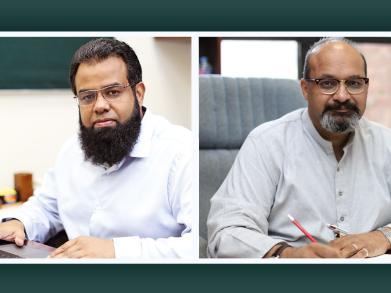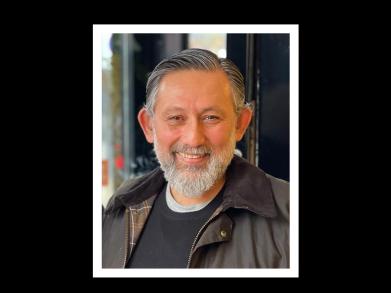LUMS Live Session 50: Celebrating the Golden Milestone
It’s time to celebrate! Over six months into the pandemic and with 49 sessions under its belt, LUMS Live has served as a turning point for the University this year. In what could have been a period of isolation and inaccessibility to all things – learning, knowledge, connection – the series allowed a globally expansive community to come together in a meaningful way. It has brought forth relevant and important conversations, and created a space to ask critical questions, engage in constructive debate, foster collaborations, and build an ecosystem of learning from others. Academics, experts and practitioners from across geographies and industries have shared knowledge and insights, and we’ve learned from discussions on an array of topics, from the impact of COVID-19 on multiple facets of our lives and learning from the history of pandemics, to learning how to learn online and diving into the world of cinema, music, poetry and more. And there’s more to come!
JWatch the 50th session of LUMS Live: Celebrating the Golden Milestone as Mr. Adeel Hashmi, the expert moderator, looks back on the exciting journey and memorable moments of LUMS Live thus far, and has a candid discussion with Dr. Arshad Ahmad, Vice Chancellor, LUMS about the value of such collaborative endeavours.
LUMS Live: Helping the Community Stay Connected and Informed
A majority of the world is confined to their homes as a result of the rapid spread of the Coronavirus. Classes at LUMS have also been moved online with majority of the staff and faculty working from home. However, just as LUMS has not let the current situation stop the students learning, it has also found a new way of keeping important conversations going.
LUMS Live, launched on March 29, 2020, is a platform that gives you the opportunity to tune in and connect with Dr. Arshad Ahmad, Vice Chancellor, LUMS and other eminent panelists as they discuss important topics. Discussions during these live sessions, hosted on the LUMS official Facebook page and moderated by Adeel Hashmi, cover topics from how to maintain good health, how to continue learning in the current environment and the changing role of technology to how to stay positive and the importance of being generous and empathetic to the people around us.
Explore our past sessions, and be sure to join us for the next session and become part of critical conversations during these unprecedented times.
LUMS Live Session 50: Celebrating the Golden Milestone
LUMS Live Session 49: The New 'Normal': Impact of COVID-19 on Women Working in the Informal Sector
LUMS Live Session 49: The New 'Normal': Impact of COVID-19 on Women Working in the Informal Sector
COVID-19 has had and continues to have a significant impact on the economy. Growth rate, unemployment, work hours, job conditions, business profitability and business sustainability, are all variables, among many others, that have been affected. This has had a significant impact on working populations that is especially severe for workers in the informal sector who do not have access to social protection and safety nets. Most women in labour markets work in informal sectors and so the differential impact on women is expected to be much larger. This impact is not just in terms of economic factors, but there is a significant socio-psychological cost that is also being imposed on females and families.
To learn more, watch the forty-ninth session of LUMS Live: The New 'Normal': Impact of COVID-19 on Women Working in the Informal Sector. The distinguished panelists for the discussion include Ms. Sofia Shakil, Dr. Faisal Bari and Dr. Hadia Majid.
LUMS Live Session 48: The Contradictions of Pakistan - The Future of Democracy, State and Identity
LUMS Live Session 48: The Contradictions of Pakistan - The Future of Democracy, State and Identity
Extremism, loyalty, bravery, dogged idealism, political chaos – all rolled into one country’s past, present and future, Pakistan is unquestionably home to a spectrum of contradictions: a country pulled in multiple directions by its politics, ethnic conflicts and identity crises and whose future prospects are constantly a topic of great speculation.
Watch the forty-eighth session of LUMS Live: The Contradictions of Pakistan - The Future of Democracy, State and Identity. The distinguished panelists included Mr. Declan Walsh, Ms. Jugnu Mohsin and Ms. Nasim Zehra.
LUMS Live Session 47: Remembering Justice Ginsburg: Confronting Women’s Challenges in Pakistan’s Legal Fraternity
Justice Ruth Bader Ginsburg, the topper of Columbia Law’s Class of 1959, could find no law firm in New York willing to hire a female attorney. Yet, she was not one to give up. Taking to academia, she became a Professor of Law at Rutgers Law School, teaching some of the first female law students there. In 1971, she appeared before the Nine with her lead brief in Reed v. Reed, where the court was considering whether men should be preferred over women as executors. Ginsburg won the first gender discrimination case of the court in USA. In 1972, she co-founded the Women’s Rights Project at the American Civil Liberties Union and, under this banner, took numerous causes to the court on which she would one day go on to sit as a Justice herself. Interestingly, the current legal landscape in Pakistan is quite similar for female lawyers to what Ginsburg consistently fought against in the US. It continues to be a hostile and unwelcoming environment for them, with little progress over the years. While women are increasingly taking up space in public and private law schools across the country, their presence is almost non-existent in the top echelons of legal practice and the judiciary.
Watch the forty-seventh session of LUMS Live: Remembering Justice Ginsburg: Confronting Women’s Challenges in Pakistan’s Legal Fraternity. Organised in collaboration with the Saida Waheed Gender Initiative (SWGI), the distinguished panelists for the discussion included Justice (R) Nasira Iqbal, Ms. Reema Omer and Ms. Nida Usman Chaudhary.
LUMS Live Session 46: Police Reform and Accountability
Police in Pakistan are perceived to be one of the most widely feared, complained against government institutions in Pakistan that lacks a clear system of accountability and is vulnerable to political interference at all levels. Despite widespread recognition of this fundamental problem within successive Pakistani governments and an acknowledgement of the need for reform, the process of revamping the police system has been extremely slow. One notable attempt made in this regard was the Police Order 2002 that addressed many organisational and structural problems that had hindered proper functioning of the police. Along with functional specialization, the 2002 Order also aimed to make the police more publicly accountable. It called for establishing several grievance redress and oversight bodies, consisting of elected and nominated members (including women), at the district, provincial, and national levels. However, nearly two decades onwards, the promise of reform remains unfulfilled.
Watch the forty-sixth session of LUMS Live: Police Reform and Accountability where our distinguished panelists included Dr. Ali Hasanain, Mr. Saroop Ijaz and Mr. Tahsin Shah.
LUMS Live Session 45: Software Industry in the New Normal - Challenges and Opportunities in the Pakistani Context
The pandemic has catalysed rapid progress in the use of technology to solve pressing problems in the new normal. For the software industry in particular, new patterns of thinking, planning and working have emerged and are having a deep effect on how new product and services are developed for the local and the international market. This disruption has also led to an acceleration of remote working and change in the focus of the technology industry, providing new opportunities and styles of work, to both large organisations and smaller companies. Finally, new patterns of hiring and training within the software industry are emerging which will have a lasting impact on young graduates.
Watch the forty-fifth session of LUMS Live: Software Industry in the New Normal - Challenges and Opportunities in the Pakistani Context. Our distinguished panelists include Mr. Aezaz Hussain - Chairman, Systems Limited, Mr. Imran Moinuddin - Founder and CEO, NexDegree and Mr. Yasser Bashir - CEO and Co-Founder, Arbisoft.
LUMS Live Session 44: Lights, Camera, Action! Inside the World of Filmmaking
LUMS Live Session 44: Lights, Camera, Action! Inside the World of Filmmaking
The art of filmmaking in Pakistan has had an interesting history. Since the creation of Pakistan, over 10,000 plus Urdu movies have been directed and produced. Several films are also made in provincial languages like Pashto, Punjabi, and Sindhi. Between 1977 and 2007, the film industry in the country faced a major decline. Meanwhile, Pakistani filmmakers have forayed into the international film landscape and produced both critically acclaimed and commercially successful films. What makes a good film? What spells success for a project? What are the challenges in the A to Z process of filmmaking?
Watch the forty-fourth session of LUMS Live: Lights, Camera, Action! Inside the World of Filmmaking. Our distinguished panelists included Mr. Sarmad Khoosat - Filmmaker and TV Director, Ms. Shazia Ali Khan - Filmmaker, Mr. Saim Sadiq - Filmmaker, and Mr. Nasir Khan - Filmmaker.
LUMS Live Session 43: Sexual Violence and Safety: Current Realities, Next Steps
LUMS Live Session 43: Sexual Violence and Safety: Current Realities, Next Steps
Sexual violence against women and children continues to emerge as a serious problem in Pakistani society. Reports of such cases surface on a daily basis and raise questions about the need for reforms in the criminal justice system as well as in societal attitudes. One recent case, of a mother raped on a highway near Lahore, has filled the nation with horror and anger and brought to the fore many urgent questions: Why is sexual violence so prevalent in Pakistan? What reforms should be put in place to curb such incidents? How can the government, police and judiciary ensure the safety of women and children? What constitutes as fair punishment for sex offenders? How can we create awareness about such issues? What social, cultural and educational reforms are needed to transform people's mindsets?
Watch the forty-third session of LUMS Live: Sexual Violence and Safety: Current Realities, Next Steps. Our distinguished panelists included Ms. Tahira Abdullah - Human Rights Activist, Ms. Mahira Khan - Actor and UNHCR National Goodwill Ambassador, Mr. Shehzad Roy - Singer and Founder, Zindagi Trust and Mr. Zarrar Khuhro - Journalist and Socio-Political Analyst.
LUMS Live Session 42: Art and Education in Pakistan: Practice and Scope - Part 2
LUMS Live Session 42: Art and Education in Pakistan: Practice and Scope - Part 2
A most powerful tradition of fine arts education exists in Pakistan. This can be traced back to more than a hundred years ago with the establishment of art schools in Colonial India. Nonetheless, this tradition has had little influence on everyday life and values. Art as a form of expression has remained under-represented in the educational fabric of the country. Alongside, a growing contemporary art scene closely tied to art schools across the country has emerged. How do art schools influence the country’s future art scenario? How engaged are artists with our society on the educational front? What role/s do the arts play in general education?
Watch the forty-second session of LUMS Live: Art and Education in Pakistan: Practice and Scope - Part 2. Our distinguished panelists included Professor Salima Hashmi - Artist, Cultural Writer and Painter, Professor Naazish Ata-Ullah - Painter and Printmaker, Ms. Rabeya Jalil - Associate Professor, National College of Arts and Dr. Razia Sadik - Associate Professor, School of Education, LUMS.
LUMS Live Session 41: Art and Education in Pakistan: Practice and Scope - Part 1
LUMS Live Session 41: Art and Education in Pakistan: Practice and Scope - Part 1
A most powerful tradition of fine arts education exists in Pakistan. This can be traced back to more than a hundred years ago with the establishment of art schools in Colonial India. Nonetheless, this tradition has had little influence on everyday life and values. Art as a form of expression has remained under-represented in the educational fabric of the country. Alongside, a growing contemporary art scene closely tied to art schools across the country has emerged. How do art schools influence the country’s future art scenario? How engaged are artists with our society on the educational front? What role/s do the arts play in general education?
To learn more, watch the forty-first session of LUMS Live: Art and Education in Pakistan: Practice and Scope - Part 1. Our distinguished panelists included Professor Salima Hashmi - Artist, Cultural Writer and Painter, Professor Naazish Ata-Ullah - Painter and Printmaker, Ms. Rabeya Jalil - Associate Professor, National College of Arts and Dr. Razia Sadik - Associate Professor, School of Education, LUMS.





